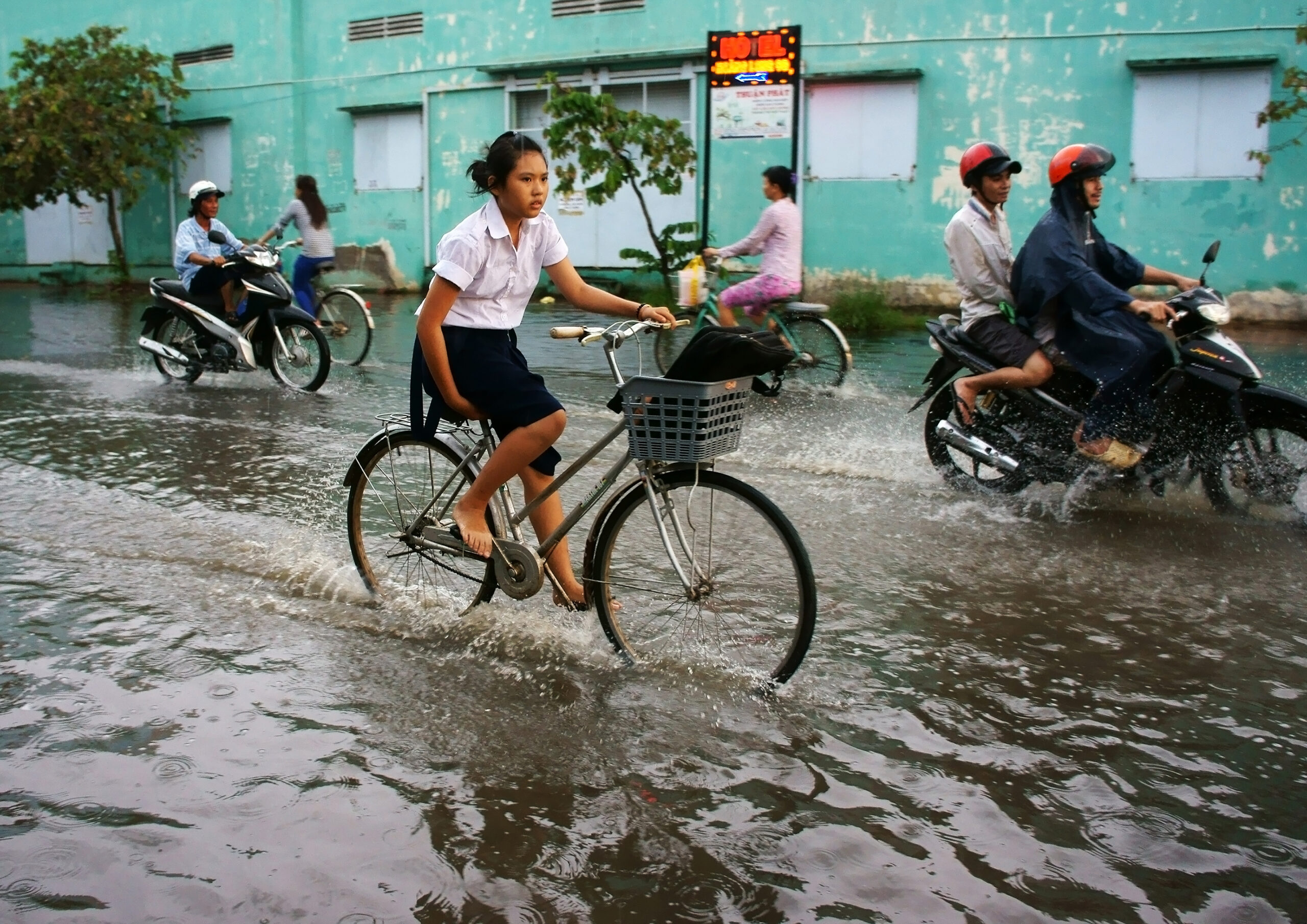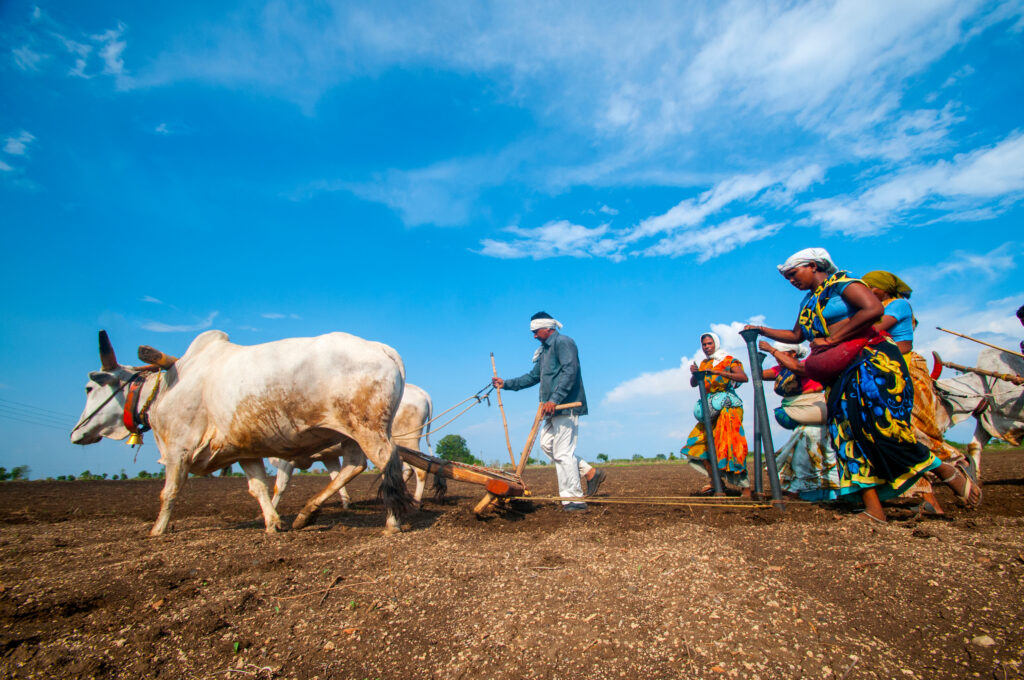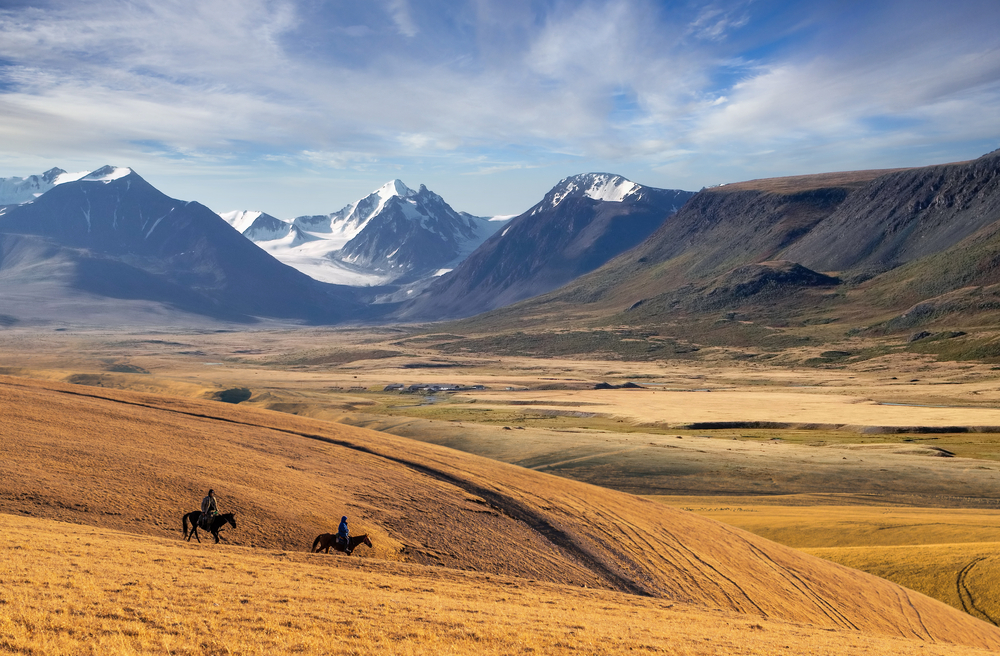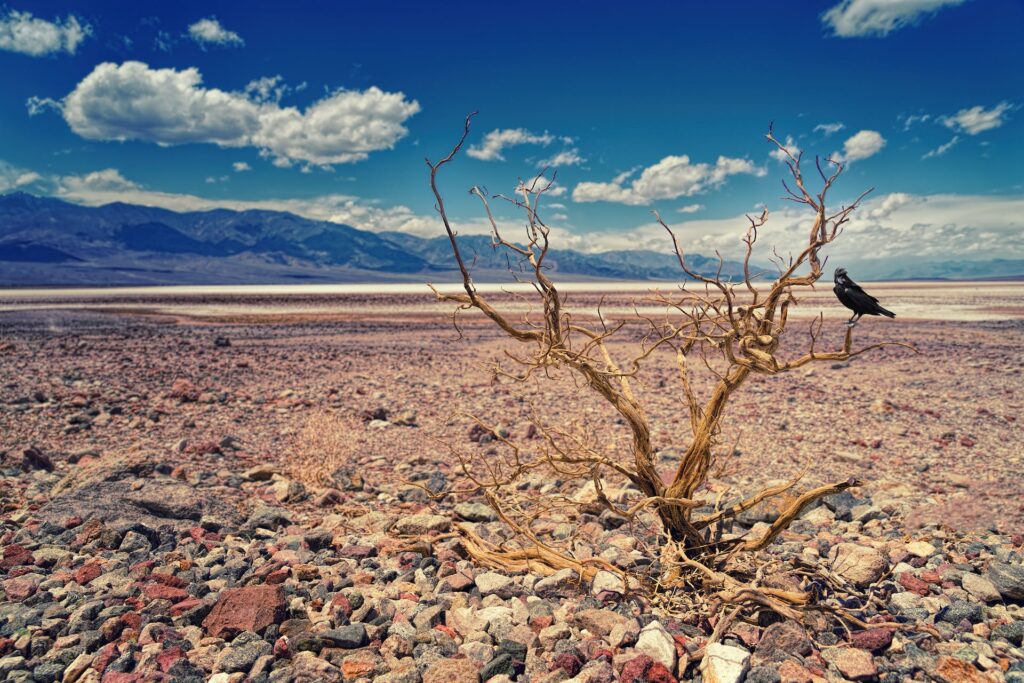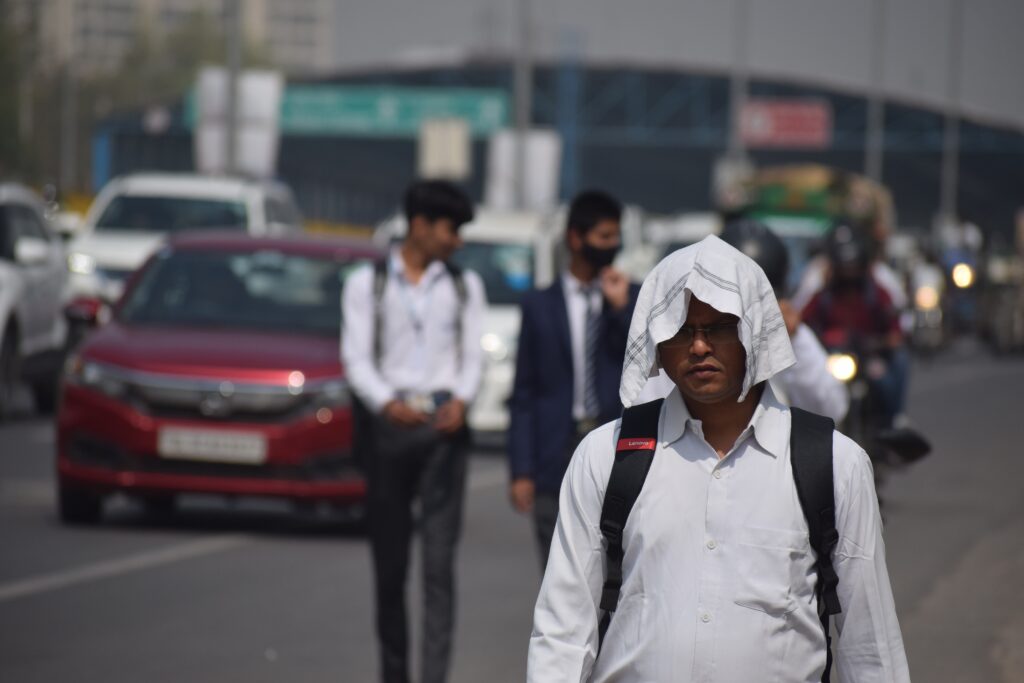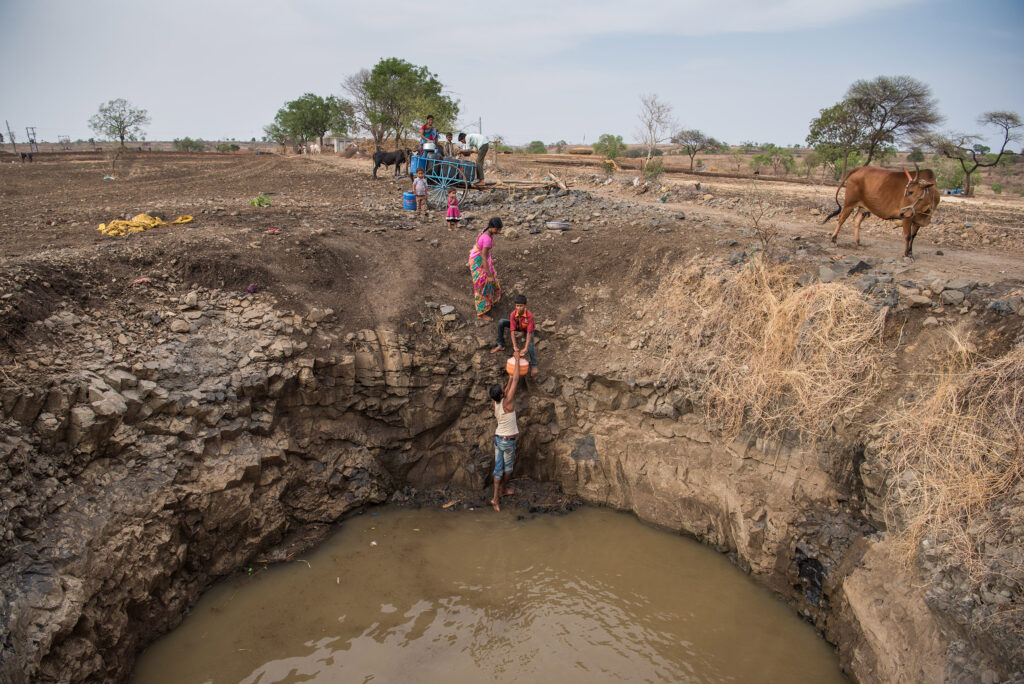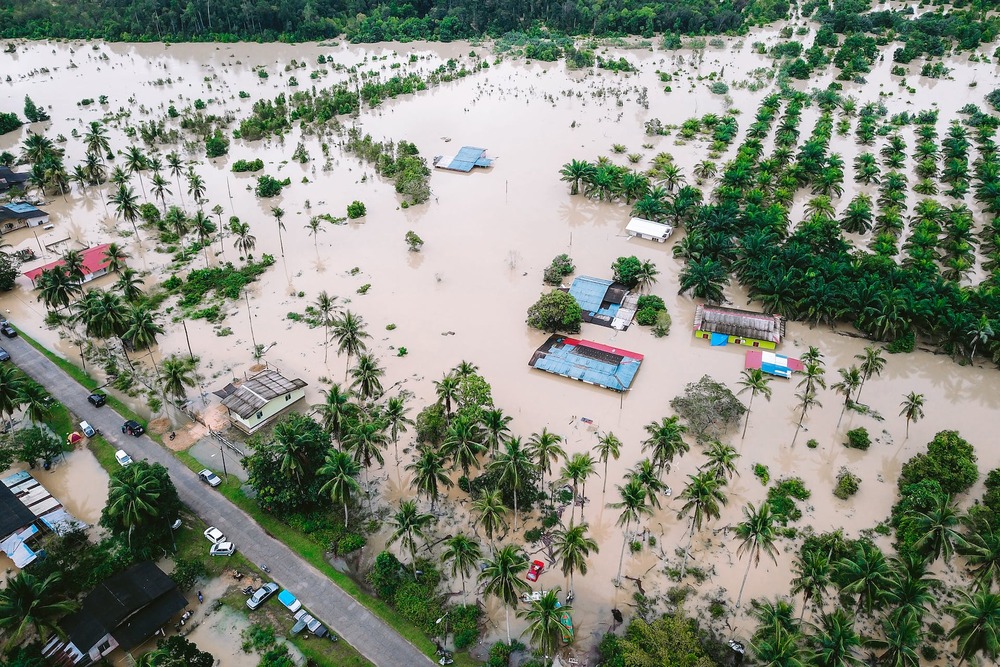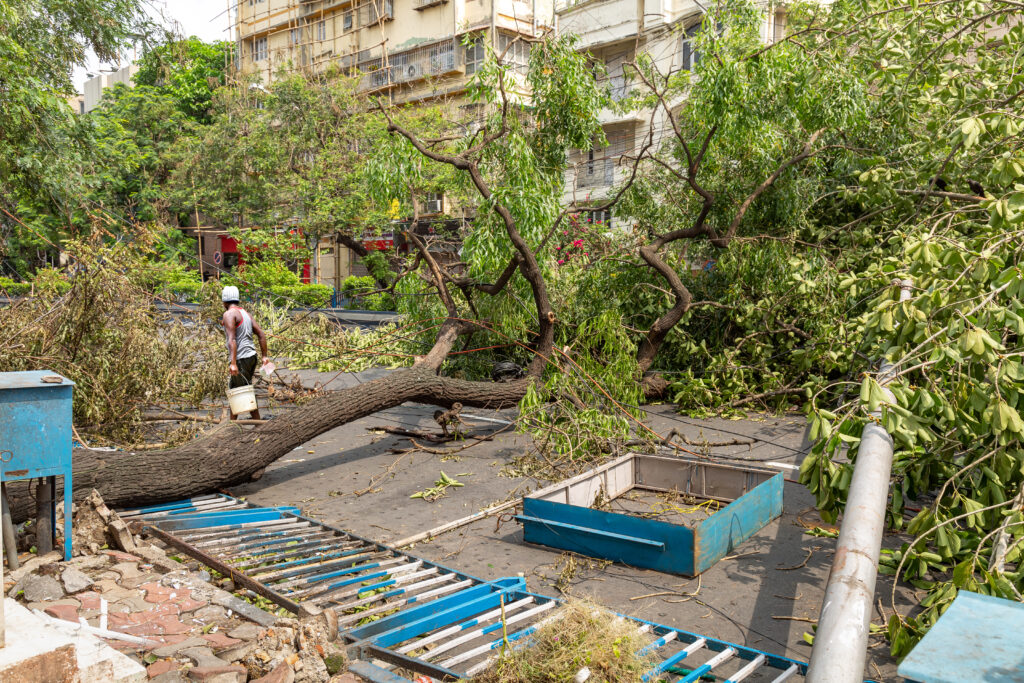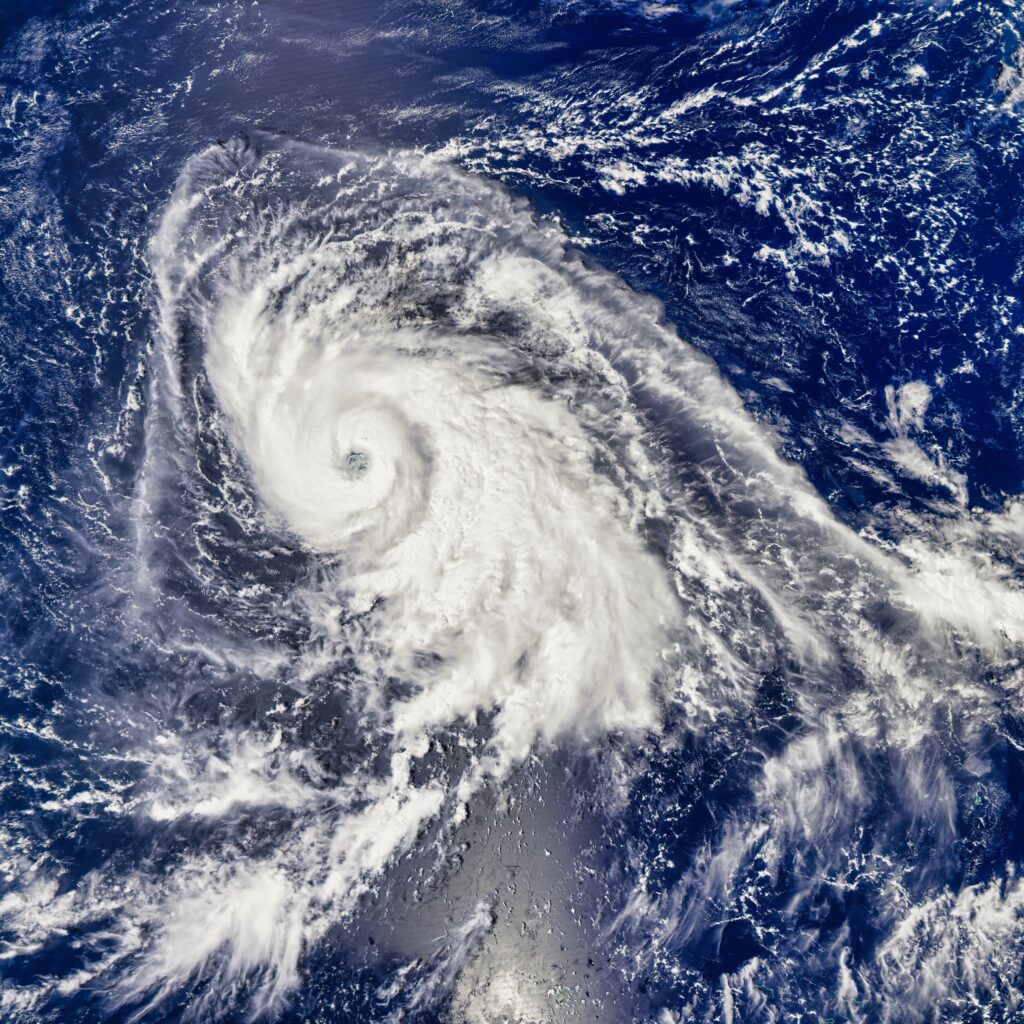In the summer months of 2022, India and Bangladesh were simultaneously struck with flooding, due in-part to climate change, and drought. While central India baked under a severe drought, in the northeastern state of Assam, heavy rainfall triggered landslides and caused riverbanks to swell. Just across the border in Bangladesh, rivers overflowed and inundated large areas of farmland. The Bangladeshi military had to drop food packets from helicopters to flood survivors on boats below. It was the worst flooding in the country in well over 100 years. All in all, millions of people were displaced.
Greenhouse Gas Emissions and More Extreme Precipitation Events
Rising temperatures due to human activity-produced CO2 emissions are creating a warmer atmosphere, leading to more intense precipitation events – as warmer air holds more moisture. For every 1°C of atmospheric temperature increase, the atmosphere can hold about 7% more water vapour. This can lead to an increase in precipitation intensity, duration and frequency. All of this climate change-induced warming is making unprecedented heavy precipitation events more likely.
According to the UN Environment Programme, as warming increases, more extreme flooding due to climate change can be expected. Likewise, the flood risk will increase for areas outside of already-recognised, high-risk, coastal, riverine and other waterside areas. For places where major flooding has already occurred, destructive flooding and extreme weather events will no longer be a “once in a lifetime” risk, but they will become much more frequent.
“It is clear that we need to be prepared to face more intense and more frequent extreme hydro-meteorological events due to climate change,” says Pascal Peduzzi, Director of the United Nations Environment Programme’s Global Resource Information Database in Geneva.
And the numbers of people at risk are growing, says Maria Sunyer, a climate risk expert at climate change consultancy EcoAct. She noted in an email to Climate Impacts Tracker Asia that according to the IPCC’s Sixth Assessment, it is expected that the percentage of the global population exposed to river floods and coastal flooding will increase in multiple parts of the globe.
“For example, the total population exposed to river flooding in Asia could increase from less than 1% in the current climate to almost 4% in a 4°C global warming level if a constant population is assumed,” Sunyer said.
And while flooding due to climate change may affect far more people in the future, it has already had a tremendous human impact so far.
The Effect of Flooding Due to Climate Change
In August 2022, Pakistan reportedly received more than three times its usual rainfall in August, making it the wettest August in over 60 years. Intense rainfall led to urban flash floods and landslides.
The flooding destroyed 1.7 million homes, and nearly 1,500 people died. Damages likely exceeded the preliminary estimates of around USD 30 billion. Around 6,700 km of road, 269 bridges and 18,590 schools were damaged. Approximately 18,000 square km of cropland were ruined.
Likewise, in June 2022, intense rains and ensuing landslides in China displaced hundreds of thousands of people. River levels reached 50-year highs, while the flow of the Beijiang River reached a level that is only likely seen once in a century.
Sunyer said, “It’s important to highlight that the implications of flooding on people’s lives and health persist after the onset of a flood. For example, in the absence of adequate drainage, floods last longer, causing water to stagnate, which often becomes home for mosquito breeds that spread diseases such as dengue and malaria.”
“Flooding has ripple effects that disrupt people’s lives and livelihoods, such as missed work, missed school and displacement that can either be temporary as people repair their homes or permanent because rebuilding is too expensive,” Joel Scata, a senior attorney on the Natural Resources Defense Council’s Climate Adaptation Team, told Climate Impacts Tracker Asia.
Vietnam’s Adaptation Strategies to Flooding
The damage, both short and long term, can be very serious. But, there are adaptive measures that can be explored – and taken – now.
“Designing and locating infrastructure with future flood risks in mind can help limit damage and disruptions to people’s lives when a flood strikes,” Scata said.
He added, “However, such actions can be expensive. That’s why it is important that programs, like the UN’s Adaptation Fund, are funded so communities that lack the resources to prepare and adapt to climate-driven flooding on their own are not left behind as the climate continues to change.”
Adding to this, Sunyer from EcoAct noted that, often, nature itself has the most efficient and well-tailored solutions for climate change resiliency. On the topic of nature-based solutions, she wrote, “Effective on their own, or used alongside conventional infrastructure, they can create additional environmental and social benefits, such as the protection of biodiversity and improved water quality.”
Sunyer gave the example of Vietnam, noting, “A great example is Ho Chi Minh City. Through the Can Gio mangrove forest, the city benefits from natural protection from coastal flooding. By limiting shoreline erosion, Can Gio mangroves can keep pace with rising sea levels, protecting one of the largest cities in Vietnam and home to more than 9 million people.”
Sam Kimball
Journalist, Tunisia
Sam is a freelance reporter, writer, communications consultant and social researcher for a variety of clientele including The Intercept, Foreign Policy, TIME, The Guardian, the Associated Press, Unicef, World Food Program and more. He has been based across the Middle East and North Africa for ten years. Sam hails from Warwick, New York, and studied anthropology and creative writing at the City College of New York and Middle East politics at New York University. He speaks English, French, Standard Arabic and multiple Arabic dialects, basic Kurdish, and has recently started studying Spanish.
Sam is a freelance reporter, writer, communications consultant and social researcher for a variety of clientele including The Intercept, Foreign Policy, TIME, The Guardian, the Associated Press, Unicef, World Food Program and more. He has been based across the Middle East and North Africa for ten years. Sam hails from Warwick, New York, and studied anthropology and creative writing at the City College of New York and Middle East politics at New York University. He speaks English, French, Standard Arabic and multiple Arabic dialects, basic Kurdish, and has recently started studying Spanish.

